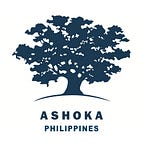Human skills are not just “soft skills”, they are essential in the future of work!
By: Zhihan Lee
This is Part 2 of a series of articles by Ashoka Fellow Zhihan Lee on how to adapt and reskill during the pandemic. Read Part 1 and Part 3.
Many people call human skills different things such as soft skills, people skills, or behavioral skills. At BagoSphere, we focus on these seven domains: Self-Leadership, Drive Change, Build Relationships, Develop People, Achieve Results, Lead with Vision, and Service Excellence.
At its core, human skills are timeless, fundamental skills that we have been developing since we were young. As children, we play with our friends and siblings. We create imaginary characters, we ask a lot of questions, take risks, and have fun. From youth, adaptation, communication, teamwork, and creativity are already an important part of the human experience. Building human skills is a continuous and progressive process that begins shortly after birth and continues through adulthood. When given the opportunity, these skills develop into higher-level skills that are valuable in the workplace such as leadership, coaching, critical thinking, project management, and conflict resolution, etc.
There is also overwhelming evidence that the biggest skill gaps are not digital skills but human skills. We can cite three examples for this:
In an IBM research¹ in 2018, which included surveys across 50 countries (5800 executives), it found that approximately 120 million professionals need to be reskilled to deal with AI and new digital business environments. The top two skills sought were behavioral skills — willingness to be flexible, agile, and adaptable to change and time management skills, and ability to prioritize. These skills were prioritized by executives over technical core capabilities and software application skills.
The second is a study by Google. In 2013, Google tested its hiring algorithms and was shocked to find that among the eight most important qualities of Google’s top employees, STEM expertise comes in dead last. The seven top characteristics of success at Google are all human skills: being a good coach; communicating and listening well; possessing insights into others (including others’ different values and points of view); having empathy toward and being supportive of one’s colleagues; being a good critical thinker and problem solver; and being able to make connections across complex ideas.
The third example is from our own experience of helping organizations reskill their workforce to meet changes to the way they work. Even before the pandemic, evolving customer needs and technology were disrupting jobs and the skills employees need to do them. Often, leaders in organizations know they have to adapt but find their workforce wholly unprepared for it. This often results in poor job performance, lack of employee engagement, and ultimately, attrition. When we worked with one of the largest microfinance organizations in the Philippines, we developed an onboarding program that primarily focused on human skills, (i.e. Self-leadership, Build Relationships, and Achieve Results). By working closely with their HR department, in 2019 we trained over 2,000 people and were able to reduce front-line role attrition by 70% and help the organization save millions of pesos in hiring costs.
The pandemic has shown us how interconnected and unequal the gaps in healthcare, education, housing, food security, and access to digital services truly are. Long-term committed effort from the country’s leadership and bureaucracy is needed to build infrastructure in these areas. However, not all infrastructures are made of concrete and metal bars. We believe that the most important ones are in people. This means building an efficient education system that would provide a skilled workforce for the Philippines, and not just to be exported to other countries. The fact that Filipinos are globally well-sought-after in areas such as IT-BPO, healthcare, care-giving, and the creative industry is a strength to be leveraged back home even more. The exponential change in technology means that the Philippine education system has to keep up with it, but it should not forget to leverage “Malasakit”, a distinctly human strategic advantage in today’s machine-enabled world. Therefore, we are encouraged by groups like the Philippine Business for Education (PBED) and Teach for the Philippines (TFP) who have been championing a strong, professional teaching force in all parts of the Philippines and emphasizing socio-emotional skills and human skills development. Both have also been working closely with private and government to run innovative programs that we believe are potentially systems-changing.
About the Author
Zhihan Lee is the co-founder and Group CEO of BagoSphere, a Philippine-based education company that works with employers to develop workforce training programs, and then trains promising jobseekers to fill in-demand jobs. Zhihan worked at a medical-tech start-up in Stockholm before venturing into rural India to work with a social enterprise involved in rural IT outsourcing. Graduating from the National University of Singapore’s Engineering Science Program, he studied entrepreneurship at the Stockholm School of Entrepreneurship & The Royal Institute of Technology. For his work at BagoSphere, he was named as a Global Good Fund Fellow in 2016 and an Ashoka Fellow in 2018.
Reference
1 https://finance.yahoo.com/news/ibm-study-skills-gap-not-121500889.html
